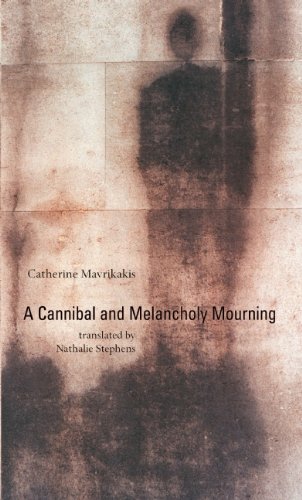
In this series, Noah Charney asks an author to choose a favorite novel that he or she thinks is a hidden gem, deserving of more attention.
Read This: Kate Zambreno Recommends Catherine Mavrikakis’ A Cannibal and Melancholy Mourning
A Cannibal and Melancholy Mourning is a novel by the French Canadian Catherine Mavrikakis. It tells the story of the deaths of a series of male friends, all of whom are named Hervé. Mavrikakis keeps an emotional distance, so as not to overwhelm the reader with the wave of death that the AIDS epidemic of the 1980s and early 90s precipitated. But the book is all the more powerful for the emotional distance and sense of confusion it sows.
Kate Zambreno is the author of the novels O Fallen Angel and Green Girl, and the distinctive piece of non-fiction, Heroines. Book of Mutter, her fourth book, will be published in October 2015. She teaches writing at both Columbia and Sarah Lawrence. Check back next month, when we will speak with Manuel Gonzales about Go Down Moses by William Faulkner.
NOAH CHARNEY: What was your first experience with the book?
KATE ZAMBRENO: I was living in Chicago and starting to help out a bit with Nightboat Books. And I had just met the translator of the text, Nathanaël, who used to publish by the name Nathalie Stephens, an extraordinary French-Canadian prose stylist who Nightboat publishes in the States, whose work deals with translation and going between gender and genre and language. And Nath gave me a copy of the book. I was learning a bit at the time about New Narrative through Nightboat, but at the time I hadn’t read Hervé Guibert, whose novel about Foucault, To the Friend Who Did Not Save My Life, I believe the Mavrikakis text is quite ghosted by. But I was so moved by the energy and atmosphere of it, its rhythms and formal structure as well.
NC: Tell me a little about New Narrative.
KZ: Usually when I think of New Narrative I think of specifically the Bay Area literary scene that began in the late 70s/80s, but extends to a larger movement in American avant-garde literature that coalesced around the AIDS crisis, and deals with writing the explicit and autobiographical body and self, often queer, and writing through theory, and community and gossip, and probably the most famous practitioners are Kathy Acker and Dennis Cooper, but also Dodie Bellamy and Kevin Killian, and…oh God, no, I’m blanking!
NC: No, no, that’s great. Just to give us a taste.
KZ: …Robert Glück, but also extends into Canada, like Gail Scott’s My Paris, also the works published on Serpent’s Tail, on Semiotext(e), more...
You have reached your article limit
Sign up for a digital subscription and continue reading all new issues, plus our entire archives, for just $1.50/month.
Already a subscriber? Sign in




